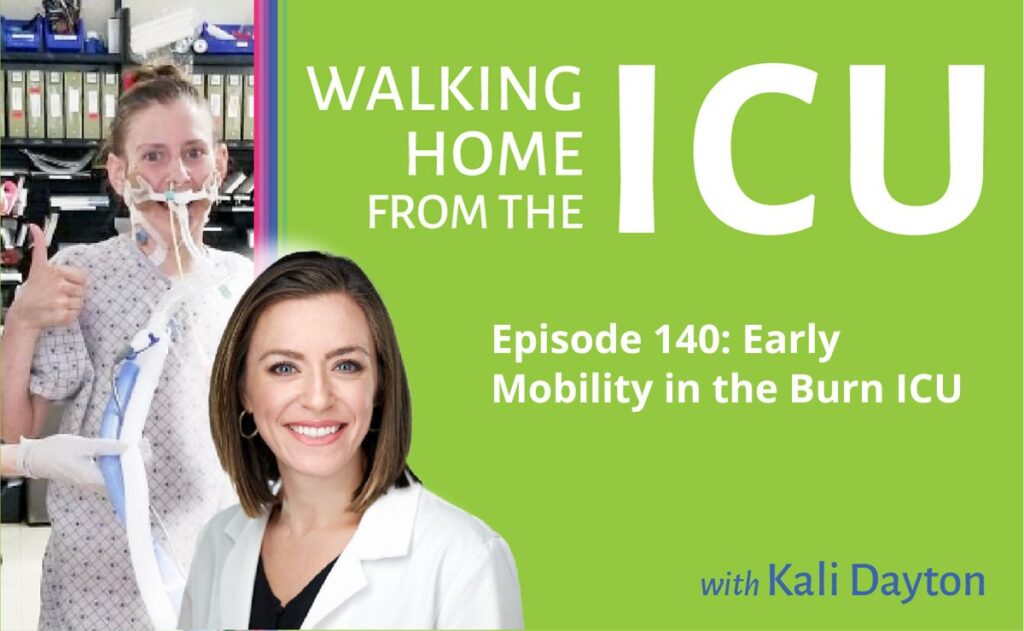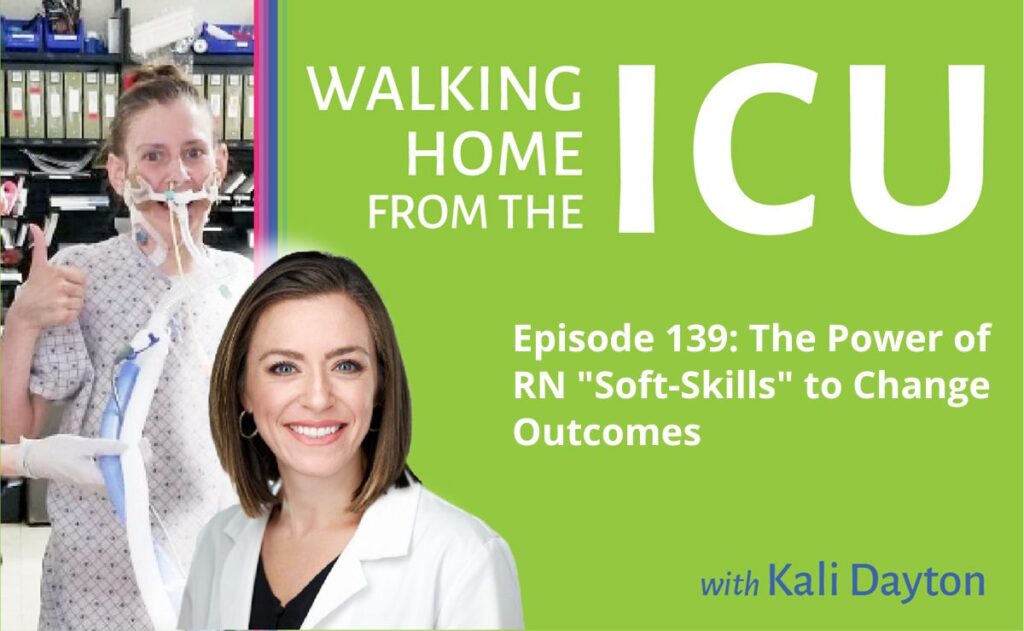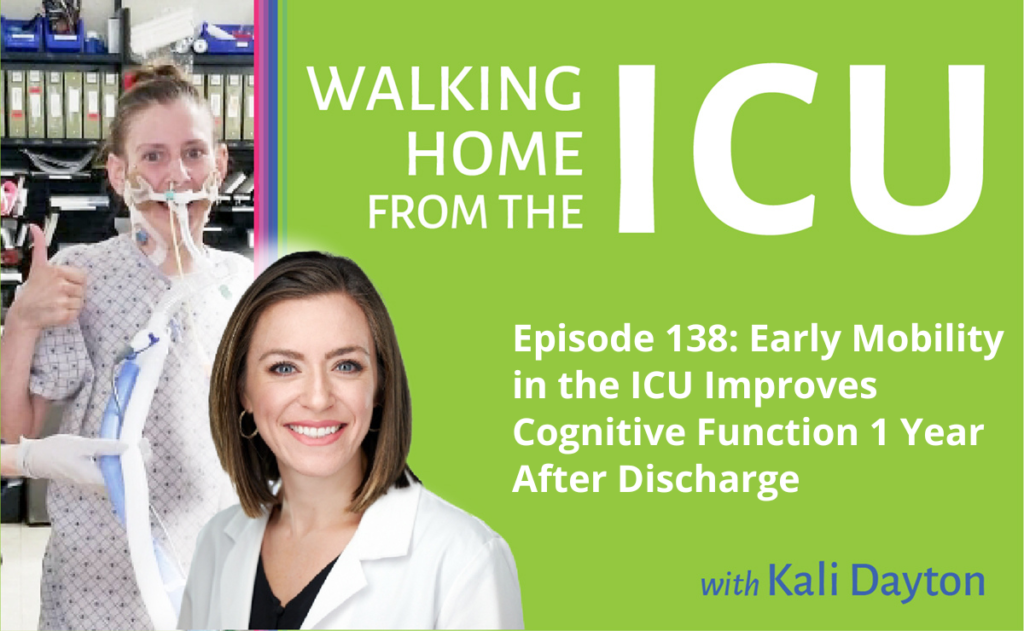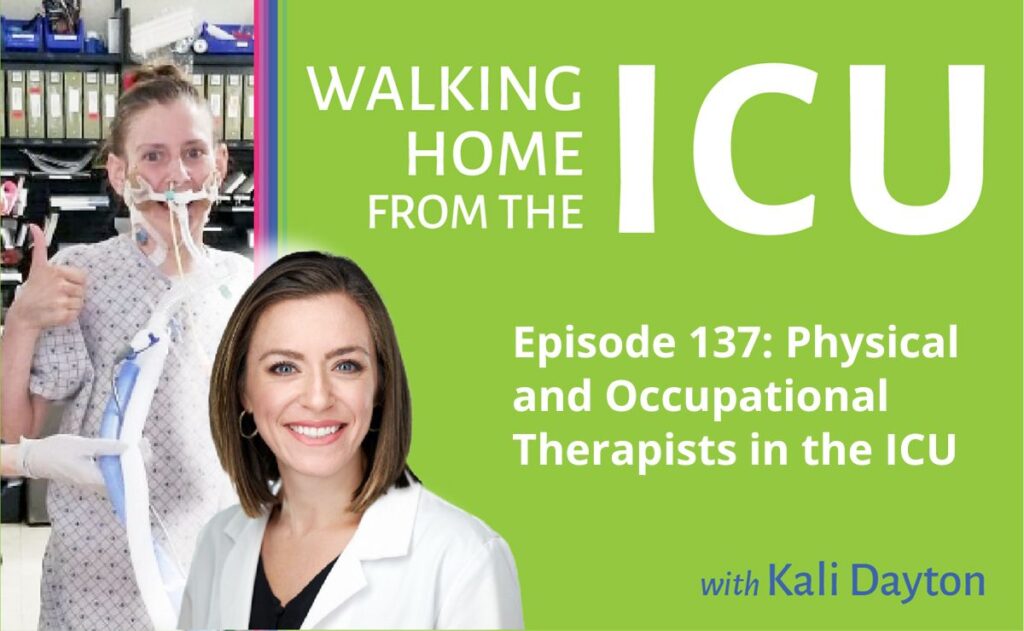
Walking Home From The ICU Episode 140: Early Mobility in the Burn ICU
Is early mobility safe and feasible in the burn ICU? Considering the significant barriers such as pain, dressing changes, variable device securement, delicate position needs, etc., how can an ICU team continue to practice early mobility? Episode Transcription Kali Dayton 0:02 Audrey, welcome to the podcast. Thanks for joining us and all your great work
Learn More > from Walking Home From The ICU Episode 140: Early Mobility in the Burn ICU





